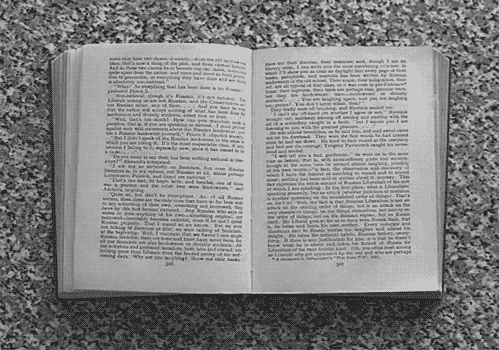It’s 12 hours before a paper is due and you are frantically searching databases for more articles to add to your paper in order to reach the required number set by your professor. You are clicking on almost anything that comes your way, but so many of them do not have full PDF versions! So what do you do? Most likely, fudge a bit about the paper based on the abstract.

You crouch into your chair and sigh, feeling a sense of accomplishment over finishing a paper you thought would never end. But wait! What about the works cited? Or the abstract? And did you remember to make a cover page? Or create the proper heading? Oh no.. this is going to be a long night….

We’ve all been there, and we have all done this at least once in our academic career (or at the very least thought about it). But this post will help you squash the future of these stressful nights by offering 5 ways that you can create a better, more efficient research paper with less stress and less time!
1. Research First, Write Later

This is a step that most people remember their WRD103 and WRD104 professors telling them in class, but few people actually follow these words of advice. Which is understandable because, to most, this step just feels like more time wasted, time that could be used writing your paper! Or watching Netflix. Or sleeping. Or baking cookies. However, this step is honestly the number one thing that will make writing your paper easier. And it will reduce the time that you spend actually writing your paper.
So what does this step mean? It does not just mean that your paper should be based off of what you find in your research (which is a very important part of the research process), but it also means that you should read ALL of your sources BEFORE you start writing.

This means going through each article, book, journal, or website you plan on incorporating into your paper and READ them. Read and take notes about important quotes, phrases, or pieces of data that you would like to include in your final paper.
This will leave you with one sheet of paper (or more likely, multiple sheets) that you can consult during the writing process, instead of multiple tabs or stacks of paper that you might need to sort through when you are looking for that one statistic that you remember reading at some point in time.
Not only that, but reading your sources before you write will help you learn about your topic, which will help your writing be more cohesive and clear in your final paper.
2. Formatting First
This is a trick that I learned during my first year as an undergraduate student after an incident that involved me turning in a 12-page research paper without my name on it.

Before you begin writing your paper, add in all necessary formatting according to the style guide you are using (APA, ASA, MLA, Chicago, etc). This means adding the following:
- Cover Page
- Heading
- Page Number
- Reference Page (complete with all citations in their proper formatting)
- Font style and Size
- Margins

- Don’t let this be you
It is important to add these BEFORE you write, because once you are finished with your paper it is more likely that you will forget about them. And although they are a small fraction of your paper, they are sometimes components that carry a heavy weight to your grade. Plus, it will make you feel like you have completed so much before you even begin!
3. Cite as you go
Another common thing that most people leave to the end of their paper is adding in-text citations (or footnotes, depending on the citation style). However, this is another detail that could be forgotten about once the paper is complete. Or you may only cite a few sources and forget about other places that need citations.

In addition, citing while you go will add more length to your paper and make you feel as if you are writing more in less time! So it is a win-win!

4. Using Quotations only when absolutely necessary
A common ‘cheat’ that some students will use to add length to their paper is to add quotations into their research paper. This is also something that is commonly done by students who do not fully understand their subject.

However, quotations are something that should RARELY be used in your paper. This is because a paper that has too many quotations lacks the strength or cohesiveness that a paper with summarization has.
A good general rule of thumb is that you should not quote more than 1 time every page, and the quotation should not be longer than 1-2 sentences. If you ABSOLUTELY feel like you need a longer quotation, or more frequent quotations, it is best to consult a friend or another outside source. They might be able to provide suggestions of how to present the same ideas without having to directly cite a source.
5. Proofread, revise, and proofread again

This is the most commonly skipped part of the writing process for all types of assignments, but this step is what makes great papers stand out from good ones. Revising can and should include at least 2 of the following:
- Reading your paper aloud to check for clarity or sentence structure errors
- Reading paper to check for organization and argument strength
- Having a friend/tutor read your paper and provide feedback
- Checking paper for grammatical errors
- Consulting the assignment to ensure all requirements have been met
Although revision may seem like an unnecessary, and sometimes un-fun activity, it is crucial to your paper and should be seen as a required step instead of an optional event.

The best part about all of these steps are that the UCWbL is here to help you! If you feel stuck during any step of your writing process, or if you feel as if you need help strengthening certain skills, we are here to help! Before you know it, you will be a whiz at making amazing research papers.

Discover more from UCWbLing
Subscribe to get the latest posts sent to your email.


2 replies on “5 Tips to Help You Write the Best Research Paper of Your Undergraduate Career”
Hi Kayla!
This was such a fun read! I really enjoyed the gifs throughout the piece (gifs always help), and I thought you gave some great advice! I personally connected with #2: Format First. I had a similar problem during my undergraduate career where I turned in a paper without any formatting at all besides 1″ margins and double-spacing. Since then, I have always done formatting first. And, on the plus side, I get to avoid that drag of doing the formatting before turning it in!
Another piece of advice that I liked was #4: Using Quotations Only When Absolutely Necessary. As a tutor, I encounter writers who use a ton of quotations only to say that they used them for length or because they didn’t understand what it was saying. I also suggest summarizing or paraphrasing because it requires more skill and understanding–things that are more impressive to professors.
-Maggie C.
This blog post is a good time.
One thing you point out here that I always always always do is Step 1. I like to do all my research beforehand and have all my quotes, data, statistics, and other information ready to go before I start a paper. This makes the actual writing process so much faster. I can fly through a 10 pager like this with almost no breaks.
Something you point out that I need to work on is my use of quotes. I think I do often use them to “cheat” if you will. There’s nothing like a nice indented quote to get you over that page limit. Also, I can just copy paste from my online source and I have 3 lines of text I didn’t even have to think about except citing it. I know that I overuse this and I’d like to improve my paraphrasing skills.